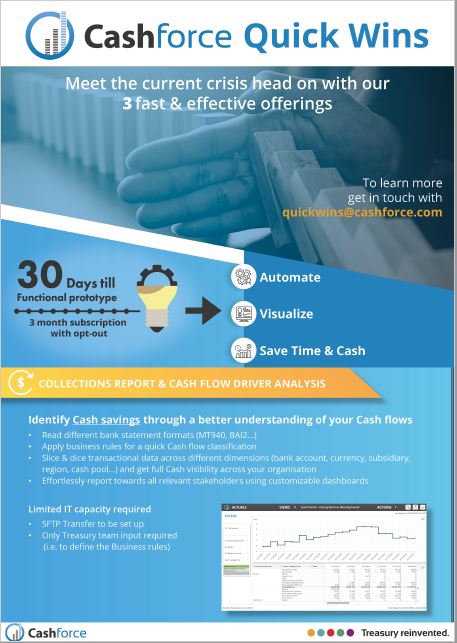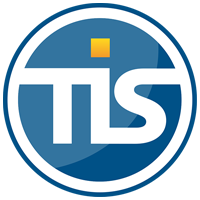| 21-01-2020 | by treasuryXL |
Are you dealing with the replacement of existing SAP-systems with SAP S/4Hana and its impact on treasury departments? Discover the opportunities offered by this transition and what you need to be aware of by attending the SAP S/4Hana seminar on June 25, 2020 in Amsterdam organised by Schwabe, Ley & Greiner (SLG).

The transition to SAP S/4HANA
Many companies are currently transitioning to SAP S/4HANA. Hardly any other issue is presently as hot in IT departments of SAP clients. Treasury departments are also affected by the switch of their companies’ ERP systems.
It is therefore helpful, as a treasury department, to address this issue regardless of the extent to which you have relied on SAP in the area of treasury in the past. Why? Because these changes are going to impact everyone. Irrespective of whether you use a stand-alone TMS (in this case, at least because the interfaces and data sources will change) or your processes are reflected using SAP treasury modules (in this case the impact will of course be greater since your own systems will be affected by the switch).
Many corporates are taking the opportunity offered by the switch to the new SAP version to integrate their systems to a greater extent. As such, the fundamental question of what system to use also arises. This could be an opportunity to efficiently design your treasury processes using a new or optimised system-based solution.
What key issues are covered in the seminar?
- SAP S/4HANA – an overview of what’s new compared to the old version
- How your future system landscape needs to be configured – which options are available and what to pay attention to
- Understand the IT approaches relevant to the S/4HANA launch
- What to do during the transition while selecting a new system – possible strategies
- A quick insight into the system: SAP S/4HANA
- A quick insight into the system: SAP Analytics Cloud (SAC)
Target Audience
Managers and personnel in the areas of treasury, cash and liquidity management, risk management, controlling, finance and accounting, payables and receivables management, IT and SAP applications.
Objectives
1. SAP S/4HANA – an overview of what’s new compared to the old version.
- General system architecture
- The new design – web-based interface as an alternative to the SAP GUI
- Which new features does SAP S/4HANA offer in the area of treasury?
- A brief explanation of the new models: SAP Cloud Platform (connection to external systems), SAP Analytics Cloud (new approach to reporting and forecasting) and SAP Leonardo (machine learning)
2. How your future system landscape needs to be configured.
- An overview of possible scenarios
- What if you already use SAP treasury modules and there’s a switch to S/4HANA? What’s going to change? Which functions will have to be modified? Which functions are going to be added? Which licenses will you need?
- Integrated system v. side-by-side approach – which advantages and disadvantages are there?
- How can your existing non-SAP TMS be integrated into an SAP landscape?
- If you currently use a non-SAP TMS, does it make sense to fully or partially switch to using SAP treasury modules?
3. Understand the IT approaches relevant to the S/4HANA launch
- Greenfield v. brownfield approach; on-premise v. cloud strategy
- Why is it also important for treasurers to understand their IT strategy?
- What do these approaches mean for treasury departments?
- S/4HANA best practices
4. What to do during the transition while selecting a new system – possible strategies
- Treasury now needs a new system-based solution but it’s going to take time to implement the new S/4HANA system landscape
- Possible interim solutions
- Can and should your treasury department be the test bed for S /4HANA?
- When is it better to wait?
5. A quick insight into the system: SAP S/4HANA
- Navigation
- New look and feel
- Insight into several important apps
6. A quick insight into the system: SAP Analytics Cloud (SAC)
- Brief overview
- Comprehensive treasury reporting in real-time
- SAC options in cash flow forecasting
Participation
The participation fee for the seminar is EUR 1,500.00 (ex VAT). This includes documentation, lunch and beverages.

Register with 20% discount via treasuryXL
We are delighted to give you the opportunity to register for the seminar with a 20% discount. Please be aware that discounted places are limited. The seminar allows a maximum of 15 attendees. We recommend to sign up early to secure your spot. You can use code treasuryXL20 at check out to receive your discount.
You can register here.
Date, Time & Location
Postponed until further notice (date unknown due to COVID-19)
10:00 – 18:00
Hotel NH Amsterdam Schiphol Airport
Kruisweg 495, 2132 NA Amsterdam
Lecturer
 Florian Maak
Florian Maak
Manager at Schwabe, Ley & Greiner
About Schwabe, Ley & Greiner
Schwabe, Ley & Greiner (SLG) has been in existence for more than 31 years and is the leading consultancy firm in the area of finance and treasury management. During these years, they have carried out more than 5,000 projects mainly in Germany, Austria and Switzerland for over 2,000 large and medium-sized clients in all sectors and on behalf of these clients for their subsidiaries in almost all Western European countries and overseas.
Visit website














